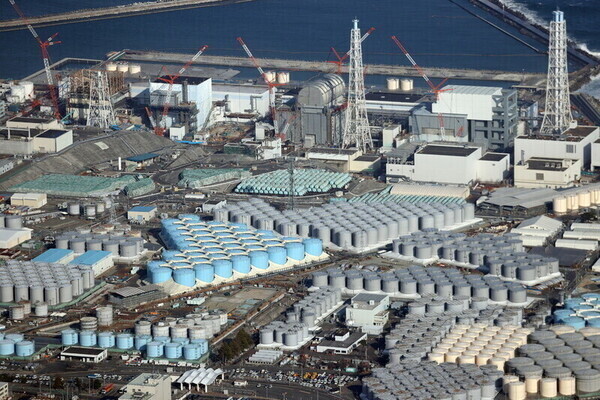Loss of Trust in Authorities in South Korea and Japan Amid Fukushima Water Release

As preparations for the disposal of radioactive water from the Fukushima nuclear meltdown are underway, concerns over the safety of seafood products have triggered panic buying in Japan. Consumers are stocking up on seafood items like salt and dried fish, leading to price surges and shortages in supply.
According to a report by Hankyoreh, a small restaurant owner in Seoul’s Gwanak District shared, “Every morning, I wake up to find that salt prices have increased by 5,000 won. Some online stores have already announced that bay salt from Shinan County is temporarily out of stock due to overwhelming orders.” Prices of bay salt have risen by over 40% in the past month, with reports of a 20-kilogram bag being sold for more than 20,000 won (US$15.60).
The panic buying of salt and dried fish is a result of consumers independently attempting to secure safe seafood before the wastewater release. Concerns arise that once the disposal begins, the consumption of seafood that cannot be stored for an extended period, such as fish and sashimi ingredients, may decline. Merchants and small business owners express growing fear and a sense of crisis.
The reason behind the heightened anxiety among the public, despite repeated government assurances of seafood safety, is the loss of trust in the authorities of South Korea and Japan. Initially, Japan claimed that its Advanced Liquid Processing System (ALPS) could eliminate nearly all radioactive elements except tritium from the wastewater. However, it later admitted that the system cannot filter 14C, which has a half-life of 5,730 years. It was also revealed that the processed wastewater still contains radioactive substances exceeding 70% of the safety threshold.
In the eyes of Koreans, this situation reflects a decision by the government to cooperate with Japan’s water release without conducting objective and thorough research. Therefore, the dispatch of a Korean inspection team to Fukushima after the fact failed to alleviate concerns.
If the government prioritized the lives and safety of its people, it should have demanded transparent data disclosure and access to facilities from the beginning. However, by dismissing these considerations and repeatedly asserting the complete safety of the wastewater, the government and ruling party are placing blame on opposition scaremongering for the public’s anxiety. This approach is irresponsible.
The Yoon administration and the ruling party should carefully consider measures to rebuild trust and alleviate fears among Koreans.
